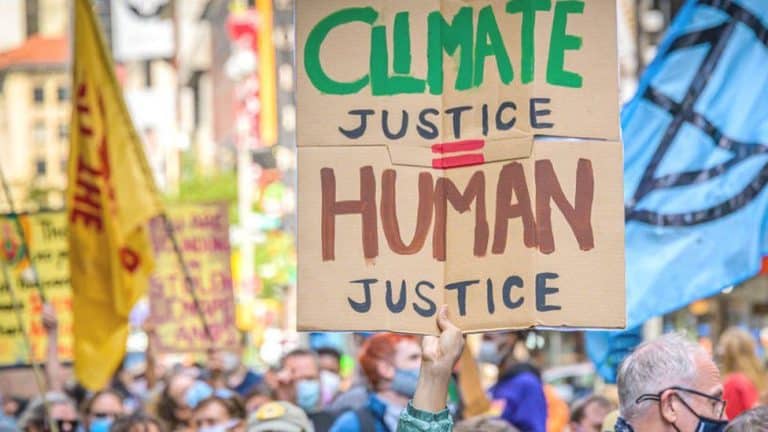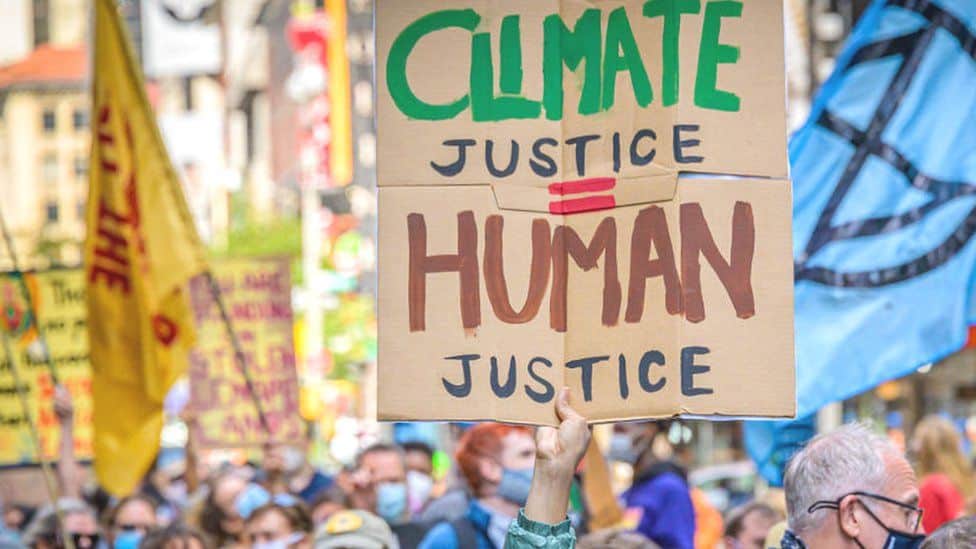
Can the Courts save us all?
Climate change it is not only a question of environment. Its effect will be permanent in modelling economy, society, and politics. This multidisciplinary impact requires a unite answer, the sovereign state is unable alone to have enough capital and political power to reach zero emission, the only way to stabilize temperature. We live in the “Society of Emergency” where it is difficult to convince people and states to take now actions that will have an impact only in the next decades. For this reason, we need a responsible private sector able to convert their way of production and investments to the green economy and a financial system able to stimulate the demand of money in this area.
An issue often underrated is related to legal system coming from private citizen and companies, rather than only states and supranational institutions’ policy making in international negotiations. Interestingly, is growing today a new jurisprudence on climate cases that may take an important role in directly influencing the production of polluting industries. An important example is the “Shell Case”, one of the legal cases that can establish a fundamental precedent for an ‘avalanche’ of climate cases as said by Roger Cox, the lawyer who won the case. Indeed, the Dutch court of Le Hague in May 2021 has ordered Shell to cut its emission by 45% (with respect to 2019) by 2030, in a ruling that could set a global precedent. Roger Cox deeply believes that the courts are our only hope in saving the planet. In an interview with the Financial Times, he said that
“One of the big reasons for the judiciary to exist is to bring balance in society and to protect us from human rights violations from our governments and other large entities that dictate our world and our wellbeing. It is just a matter of time before the same kind of approaches will also be successful in other countries.” In history, much progress has been made thanks to court rulings, that preceded political decision when politics was not ready to make a big leap. We can think of the European Union, many prominent scholars argue that Europe was made through Law. Vauchez (2013) wrote that Legal scholars worked to transform the Three Communities (EEC, Euroatom,ECSC) into one “constitutional settlement”, the EU we know today. Another example is he famous Cassis de Djon Case, where the ECJ gave the legal basis for the Single Market. Now courts can do the same and help us when policy fails. They can save us from climate change by ruling against big polluters or government that refuse to take action. Cox said that “
“The consequences for life and for wellbeing, and for your right to water and food, will all be violated for eternity if we do not address this.” He added that:“We’re talking about the most widespread human rights violations ever. Obviously, courts do feel a very strong urge to intervene once they understand what the problem is, how urgent the problem is and what is at stake.” The other big win for Cox was the “Ugenda” case against the Dutch government in 2015 where the court ruled that the Dutch State should cut carbon dioxide by 25% with respect to 1990 by 2021 on the basis of the Paris agreement. He also won a case in June 2021, when a Belgian court ruled that the Belgian government had breached the human rights of 58,000 individual claimants by not taking adequate climate action.
How are these ideas working in practice? The Dutch government only introduced emissions-cutting measures last year, five years after the case and after the government lost the last appeal. However, the ruling help shifting the debate from whether it’s right to cut emission on how to do it. These types of cases are indeed spreading around the world, including countries like Germany (against BMW), Ireland and France (against TotalEnergies). Cox said he expects bank and financial institutions to be the next targets.
We cannot give a definite answer on whether this approach will help us with climate change, but it’s something worth reflecting on.
Author:Laura Fracaro
Can the Courts save us all?
Climate change it is not only a question of environment. Its effect will be permanent in modelling economy, society, and politics. This multidisciplinary impact requires a unite answer, the sovereign state is unable alone to have enough capital and political power to reach zero emission, the only way to stabilize temperature. We live in the “Society of Emergency” where it is difficult to convince people and states to take now actions that will have an impact only in the next decades. For this reason, we need a responsible private sector able to convert their way of production and investments to the green economy and a financial system able to stimulate the demand of money in this area.
An issue often underrated is related to legal system coming from private citizen and companies, rather than only states and supranational institutions’ policy making in international negotiations. Interestingly, is growing today a new jurisprudence on climate cases that may take an important role in directly influencing the production of polluting industries. An important example is the “Shell Case”, one of the legal cases that can establish a fundamental precedent for an ‘avalanche’ of climate cases as said by Roger Cox, the lawyer who won the case. Indeed, the Dutch court of Le Hague in May 2021 has ordered Shell to cut its emission by 45% (with respect to 2019) by 2030, in a ruling that could set a global precedent. Roger Cox deeply believes that the courts are our only hope in saving the planet. In an interview with the Financial Times, he said that
“One of the big reasons for the judiciary to exist is to bring balance in society and to protect us from human rights violations from our governments and other large entities that dictate our world and our wellbeing. It is just a matter of time before the same kind of approaches will also be successful in other countries.” In history, much progress has been made thanks to court rulings, that preceded political decision when politics was not ready to make a big leap. We can think of the European Union, many prominent scholars argue that Europe was made through Law. Vauchez (2013) wrote that Legal scholars worked to transform the Three Communities (EEC, Euroatom,ECSC) into one “constitutional settlement”, the EU we know today. Another example is he famous Cassis de Djon Case, where the ECJ gave the legal basis for the Single Market. Now courts can do the same and help us when policy fails. They can save us from climate change by ruling against big polluters or government that refuse to take action. Cox said that “
“The consequences for life and for wellbeing, and for your right to water and food, will all be violated for eternity if we do not address this.” He added that:“We’re talking about the most widespread human rights violations ever. Obviously, courts do feel a very strong urge to intervene once they understand what the problem is, how urgent the problem is and what is at stake.” The other big win for Cox was the “Ugenda” case against the Dutch government in 2015 where the court ruled that the Dutch State should cut carbon dioxide by 25% with respect to 1990 by 2021 on the basis of the Paris agreement. He also won a case in June 2021, when a Belgian court ruled that the Belgian government had breached the human rights of 58,000 individual claimants by not taking adequate climate action.
How are these ideas working in practice? The Dutch government only introduced emissions-cutting measures last year, five years after the case and after the government lost the last appeal. However, the ruling help shifting the debate from whether it’s right to cut emission on how to do it. These types of cases are indeed spreading around the world, including countries like Germany (against BMW), Ireland and France (against TotalEnergies). Cox said he expects bank and financial institutions to be the next targets.
We cannot give a definite answer on whether this approach will help us with climate change, but it’s something worth reflecting on.
Author:Laura Fracaro
RELATED
Regulatory Developments in ESG Reporting and Their Implications for Businesses
The focus on Environmental, Social, and Governance (ESG) factors has surged, leading to significant regulatory changes worldwide. Key developments include the EU’s Corporate Sustainability Reporting Directive (CSRD), the US SEC’s...
Read MoreThe Earthshot Prize 2022
The Earthshot Prize 2022 The Earthshot prize is an award given to five winners that created some projects that could help our planet face some of the most important challenges...
Read More

